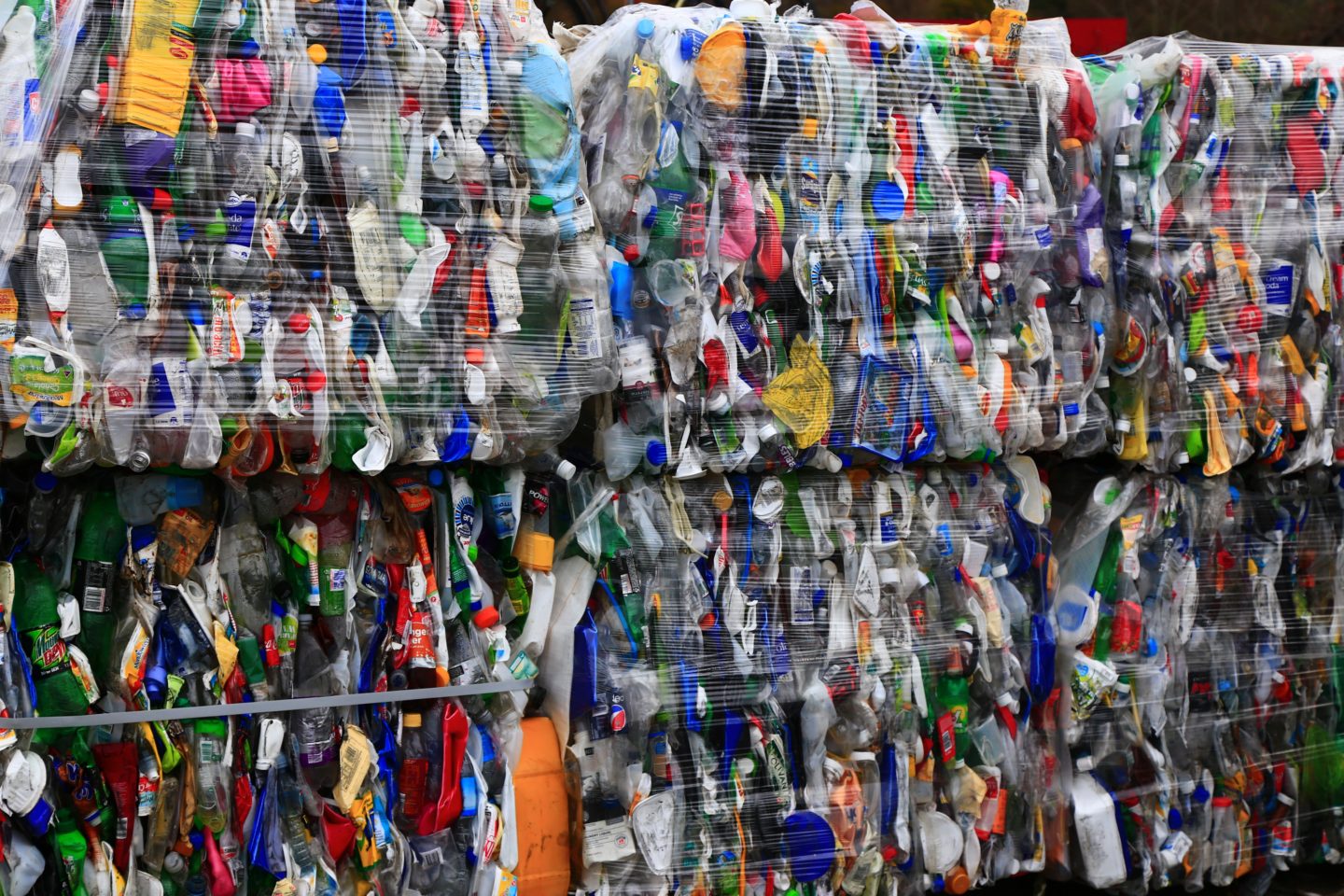
Carbon accounting: learnings from the governance journey
How companies understand their sustainability-related governance may hold the key to meeting climate goals and thriving in a net-zero economy ...

by Carlos Cordon Published 25 November 2021 in Sustainability • 6 min read
Chief Operating Officers have needed to factor sustainability considerations into decisions about their companies’ operations for some time, but over the past two or three years the topic has taken on much more importance. And the job of the COO has becoming infinitely more complicated as a result.
Previously, COOs did what was necessary on sustainability to comply with legal requirements or respond to the demands of NGOs, but it was not one of their main responsibilities. Now, in contrast, it has become one of their core objectives and there is a sense of urgency that wasn’t there before.
This is partly because pressure to act on sustainability no longer just comes from NGOs but also from companies’ boards and CEOs, who are being told by investors that their businesses need to become more sustainable to retain or secure investment. Sometimes investors are only looking to hold shares in the most sustainable company in a particular industry, so compliance with sustainability standards is not enough. Instead, companies need to have higher sustainability standards than all of their peers if they are to attract investment.
As a result, even sustainability champions such as Unilever are saying they need to accelerate progress in this area. “We need to move even further, and faster,” Chief Sustainability Officer Rebecca Marmot said in this year’s review of the company’s 2010-2020 Sustainable Living Plan.
At the same time, the complexity involved in ensuring sustainability in a company’s activities has increased enormously. It is no longer just a matter of assessing the sustainability impact of the company’s internal operations, in its factories and warehouses for example, but of its whole value chain, because most of the ESG footprint from its products relates to the operations of its suppliers and distributors.
“There is a huge ambiguity around the definition of sustainability,” said Sami Naffakh, Chief Supply Officer and member of the Group Executive Committee at Reckitt, “and supply chain experts have a challenge operationalizing it.”

“While bottling companies may all want to make bottles out of recycled plastic, there is simply not enough recycled plastic available to enable them to do this”
In the case of greenhouse gas emissions, the GHG Protocol, an initiative set up by the World Business Council for Sustainable Development and the World Resources Institute, refers to indirect emissions beyond a company’s own walls as Scope 3, with emissions from its own operations and electricity consumption referred to as Scope 1 and 2. When Kraft Foods road-tested the GHG Protocol’s standard for measuring companies’ direct and indirect emissions, it found that Scope 3 accounted for more than 90% of its total emissions. And Unilever currently calculates that its own operations make up only 2% of its total emissions, with the remaining 98% coming from Scope 3. The main contributions are from raw materials including third-party manufactured products (49%), logistics and distribution (15%), packaging materials (12%), retail (10%) and disposal of waste products and packaging (9%), it says.
Moreover, sustainability now plays a much bigger and more complex role in procurement decisions. Previously COOs might have had a list of sustainability criteria that suppliers needed to meet, alongside other conditions, but they would then choose the cheapest bidder from those meeting these basic requirements. Now there are likely to give different weightings to a range of sustainability indicators in all tenders.
And for COOs used to dealing with simple objectives such as cost and quality requirements, it is a huge headache to be faced with 17 Sustainable Development Goals and an almost impossible task to take full account of all of them in procurement decisions. While they may need to report on the impact of their operations in relation to all 17 SDGs, they will therefore often choose to give priority to the areas in which they are having most impact.
The task is made even more daunting when companies have lots of small suppliers and the performance of all of these against a range of sustainability targets needs to be assessed. COOs are therefore crying out for services that collate all the relevant information for them, similar to the riskmethods service which provides customized real-time information to companies on risks that might affect their supply chains.
This has led to the development of certification bodies such as EcoVadis, which customers can use to check suppliers’ sustainability credentials, rather than requiring them to fill out long questionnaires. Such mechanisms can also be helpful for the suppliers themselves, particularly if they are small firms with numerous business customers all focusing on different SDGs. And separate certification systems have been developed to meet the needs of particular industries, such as the Sustainable Apparel Coalition’s Higg index, which incorporates a set of tools to assess the sustainability performance of the fashion industry.
“Sustainability in the value chain is an ecosystem. For example, in the case of agribusiness we consider the landscape and the need to preserve the biodiversity of that ecosystem,” observed Magdi Batato, Executive Vice President of Nestlé Group.
Sustainable materials in short supply
But even when all parties are committed to sustainability, achieving their objectives may not be as straightforward as first envisaged. A significant challenge facing manufacturers is how to obtain enough of the materials needed to produce sustainable goods at scale when such materials are in short supply. While bottling companies may all want to make bottles out of recycled plastic, there is simply not enough recycled plastic available to enable them to do this. And while governments are pushing for a move from fossil fuel to electric vehicles, mining group Glencore has noted that there is not enough cobalt in the world to enable everyone to switch to electric cars.

COOs may also be confronted by unexpected ethical dilemmas. While some NGOs have criticized clothing manufacturers for paying low wages to their mainly female workforce in some parts of the world, others have noted that these wages offer a reasonable living by local standards and may represent the main source of household income for many families, so not using such suppliers would ultimately have an adverse impact on these women.
But perhaps the biggest challenge for COOs seeking to their companies’ sustainability performance is how to influence other stakeholders in their value chain – transport firms, suppliers and customers. This has led some companies to consider joining forces to put pressure on suppliers and service providers. However, this can sometimes come at the risk of being charged with anti-competitive practices, even if there is a positive impact for sustainability. In one famous case, Unilever and Proctor & Gamble were fined by EU antitrust authorities for colluding in a drive to reduce packaging for detergents despite the positive environmental impact of the initiative.
Businesses have also resorted to vertical integration as a potential solution, investing in start-ups or buying up smaller suppliers to ensure a supply of sustainable materials, as well as having greater control over sustainability practices in their supply chain. For example, Coca Cola HBC, the arm of the Coca-Cola Company that bottles and sells its beverages in 28 markets, invested in the establishment of a plastic bottle recycling facility in Austria in 2006 along with three local beverage manufacturers, to guarantee an adequate supply of bottles made from recycled material without having to rely on external plastics recycling companies. Similarly, Volkswagen has invested in Swedish start-up Northvolt, which will produce batteries for VW’s electric cars.
However, there is one group of stakeholders that it can be particularly difficult to influence – consumers. In many industries, building a circular economy relies on customers putting used materials into a recycling pipeline. But garment manufacturers’ schemes to buy back old clothes and bottling companies’ initiatives to repurchase used plastic bottles have generally so far not been successful, and it is very hard to change the attitudes and behavior of customers.
Overall, then, companies’ increased focus on sustainability is presenting COOs with multiple challenges. The complexity of their role has increased enormously as businesses target a wide range of sustainable development goals rather than a few basic criteria. COOs also now must pay attention to the impact of the whole value chain and therefore have to keep a much closer eye on the operations of their suppliers and distributors, as well as working with governments and NGOs. And even when everyone is totally committed to sustainability, it can sometimes simply be physically impossible to obtain enough sustainable materials. The COO’s task has therefore become infinitely harder.

Professor of Strategy and Supply Chain Management
Carlos Cordon is a Professor of Strategy and Supply Chain Management. Professor Cordon’s areas of interest are digital value chains, supply and demand chain management, digital lean, and process management.

16 November 2023 • by Ralf W. Seifert, Richard Markoff, Alexander Schmidt in Supply chain
How companies understand their sustainability-related governance may hold the key to meeting climate goals and thriving in a net-zero economy ...

14 November 2023 in Supply chain
Henrik Andersen discusses with IMD President Jean-François Manzoni the challenges of navigating supply chain disruptions and soaring raw material costs over the past three years, and why he changed the wind farm...

7 November 2023 • by Mark J. Greeven, Patrick Reinmoeller in Supply chain
Li Shufu, CEO and founder of Chinese carmaker Geely, overcame a host of setbacks to become the billionaire owner of a multi-faceted business ...

4 October 2023 • by Carlos Cordon in Supply chain
De-risking strategies, sustainability considerations, and geopolitical awareness will play pivotal roles in reshaping how businesses operate in the years to come....
Explore first person business intelligence from top minds curated for a global executive audience